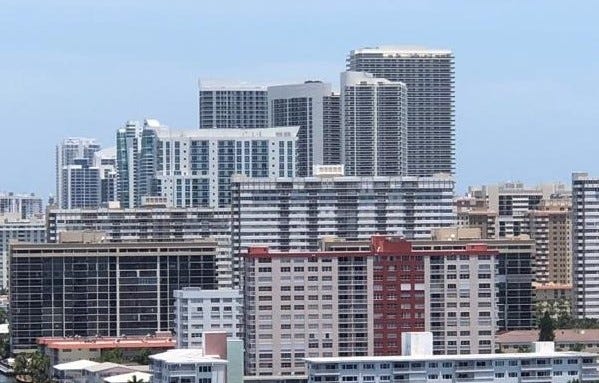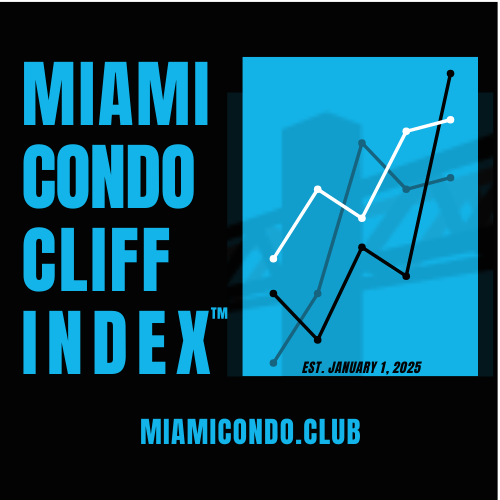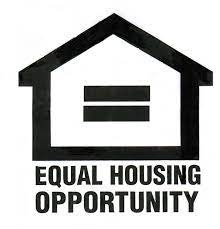Here's How Florida Can Fix Condo Associations In Upcoming Special Session
In this latest issue of the Miami Condo Market Intelligence Report™, we offer some suggestions regarding condo association relief before next week's Special Session of the Florida Legislature.
Volume 2025, Issue 4 (Subscribe here)
For this week’s Miami Condo Market Intelligence Report™ newsletter, we offer some suggestions on how Gov. Ron DeSantis (R) and the Florida Legislature can use the free market to fix the state’s condo associations during next week’s Special Session.
Time is, apparently, of the essence as the governor recently called this Special Session for Monday, Jan. 27, 2025, even though the Florida Legislature was already set to meet some five weeks from now.
By calling a Special Session, it reportedly allows any and all changes to the Florida Condo Law to be implemented immediately. By contrast, any changes that are made during the regularly scheduled March legislative session would reportedly not go into effect until July and or even January 2026.
The impetus of this emergency Special Session, according to press reports, is primarily focused on immigration in relation to a campaign promise made by the new presidential administration.
However, the governor said he also wants the legislature to search for solutions - or at least partial relief - for cash-strapped condo owners who are being hit by skyrocketing maintenance fees and hefty special assessments in the wake of legislative changes made after the Surfside condo collapse.
People are dubbing this moment as Florida’s 2025 Condo Association Financial Cliff.
For the last seven months, we have been chronicling falling condo sales and rising resale supply as owners tried frantically to unload their units - some even at deep discounts - ahead of 2025 when reserves became mandatory.
Currently, South Florida has nearly 12 months of supply listed for resale, placing its status firmly in a buyers market.
Industry watchers consider six months of supply to be a balanced market. More months of supply indicate a buyers market while less months suggest a sellers market.
Much of the unit owner angst is the result of the findings being recommended by licensed engineers and architects in their final reports called Structural Integrity Reserve Studies (SIRS). These critical life-safety examinations were required to be completed by Dec. 31, 2024, under the revised Florida Condo Law.
In the aftermath of the June 24, 2021, collapse of the Champlain Towers South in the town of Surfside on the barrier island of Miami-Dade County, everyone from residents to building inspectors, politicians to bankers understands better than ever the importance of ensuring that no Florida condo building ever collapses again.
Nearly 100 people died and a $1 billion settlement was reached with the families of the victims.
A federal investigation is currently underway but the preliminary reports suggest a flawed design coupled with a lack of upkeep by the condominium’s association contributed to the disaster.
The Florida Legislature has taken a number of steps - prompted by insurance companies threatening to withdraw coverage in the state - to ensure that nothing like this ever happens again.
Up until 2025, the state’s measures were being implemented slowly in hopes of giving condo associations adequate time to prepare.
Beginning this month, condo associations in Florida are now required to start collecting money from unit owners to place into reserve accounts that will be used exclusively to fix, maintain and improve the structural integrity of residential buildings that are at least three-stories tall.
This brings us back to the Special Session scheduled for Monday in Tallahassee.
The Legislature will probably focus most of its energy on Florida’s insurance crisis.
We addressed the insurance component of the problem last week with a call to examine the possibility that Florida may need to create a new Citizens Property Insurance-like entity to provide coverage for the thousands of Vintage condo associations that are at least 30 years old in the sunshine state.
We are dubbing it Citizens 2.0.
This week, we want to offer some additional suggestions to shore up Florida’s condo associations before unit owners find themselves in a doom-loop scenario.
The fix, in a word, is simple: transparency.
All the Florida Legislature would need to do is make all financial and life-safety information on condo associations public just like it has done with deeds, mortgages and condo declarations.
Right now, condo associations, in most cases, only share critical information with unit owners. Prospective buyers can obtain the condo association information only if the sellers agree to share it.
The Florida Division of Condominiums, Timeshares and Mobile Homes is already collecting a lot of the important information about individual condo associations but only a portion of the details are shared with the public.
If Florida were to make the information readily available online for buyers, lenders and insurance companies, the market for the first time would have an opportunity to thoroughly evaluate every one of the state’s nearly 28,250 condo associations that represent more than 1.2 million units.
For local context, the tricounty South Florida region of Miami-Dade, Broward and Palm Beach account for about 13,000 associations with nearly 610,000 units.
Greater condo association transparency would, conceptually, lead to a better understanding of efficiencies, opportunities and pitfalls.
For the last 15 years, we have discussed the need for a ratings agency approach – modeled after Wall Street – to evaluate the financial health of the thousands of condo associations that exist in Florida.
It would be much easier to do today than it was more than a decade ago given the advancement in big data and the potential for artificial intelligence.
Property management companies and condo associations have always resisted the idea for a number of reasons, including losing their competitive advantage as a result of disclosing material information about the financial health of their respective communities.
Think about it, well-run condo associations – much like publicly traded companies – could garner higher prices on the resale market while poorly run communities could be penalized, in terms, of valuations.
We contend a third-party ratings approach that resulted from making key condo association information available would work relatively quickly to identify the communities that are strong.
More importantly, the information would highlight the projects that are in need of added scrutiny to ensure there is never another tragedy such as Surfside.
Condo associations that are no longer viable due to deferred maintenance, obsolescence or tired owners who do not want to spend the time and or money to remedy their communities could emerge as targets for termination.
Ultimately, unit owners in these targeted communities could sell in bulk to developers who, in turn, could replace the antiquated buildings with new structures that feature the latest technology.
These new condo projects would not only be safe but also generate increased property tax revenue for local cities, counties and school boards.
This newfound transparency would empower condo associations, providing an advantage when shopping for better terms and conditions from insurance companies, lenders and property management firms.
Ideally, the Florida condo market would eventually evolve into a competitive marketplace for all parties, ranging from associations to service providers, unit owners to buyers.
Even if the Florida Legislature fails to provide the added transparency that we are calling for during next week’s Special Session, we are hopeful that it is only a matter of time before a Condo Ratings Agency™ is operational in South Florida given the need and advancements in technology.
It is worth noting that we share a portion of our research for free with subscribers to our newsletter and readers of MiamiCondo.Club.
If you want access to all of our published information and charts, we would encourage you to join the Miami Condo Investing Club™.
The objective of the Club is to create a community that shares realtime, actionable information on the latest real estate trends, opportunities and service providers in South Florida.
The Club is ideally suited for Do-It-Yourself (DIY) condo buyers and real estate professionals, alike, who can rely on our latest statistics, expert opinions and access to consulting services.
Additionally, we encourage you to listen or view our podcast wherever you get podcasts. The podcast is available on Apple, Spotify and/or YouTube.
As a reminder, we are always available for consulting, expert witness work and buyside brokerage services just as we have been since 2006.
If you are seeking information on condo resales in South Florida, please visit CondoVulturesRealty.com or call the office at 305.865.5859.
— Peter Zalewski, Founder of the Miami Condo Investing Club™
Story 1
Broward County Sellers Offer Vintage Units At 33% Discount At Start Of 2025 Condo Cliff

Broward County Vintage condos - at least 30 years old - are listed for resale at an average price of more than $293,050 per unit compared to nearly $436,230 for the overall market.
Story 2
What Does AI Think Is Future Of Vintage Condo Buildings In Florida?

We asked Google's Notebook LM to analyze our latest piece entitled "Does Florida Need A Citizens 2.0 Insurance Option For Vintage Condo Buildings?" that was published Jan. 19, 2025.
Story 3
Miami-Dade Vintage Condo Cliff Index™ Falls 2.82% On Week-Over-Week Basis
Here is the latest update to the Miami Condo Cliff Index™ as of Jan. 21, 2025. The index is updated every Tuesday.
Story 4
Expert Peter Zalewski Talks South Florida Condos On Miami's WSRF 1580 AM Radio

Miami condo expert Peter Zalewski appeared on the local business radio show "Chat With Kattt" with host Kathleen Barreau to discuss the outlook for South Florida condos.
The views and opinions expressed in this report are for general informational purposes only. It is believed to be accurate and complete based on current market trends but cannot be guaranteed or warranted as circumstances change without notice. It should not be considered as financial, legal, tax or investment advice. This content should not be relied upon as the sole basis for making any financial decisions. Before making any investment or financial decisions, you should consult with a qualified professional to determine the suitability of any investment or strategy for your individual circumstances and goals.
Copyright © 2025 Condo Vultures®, LLC. All Rights Reserved.













